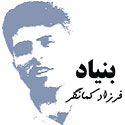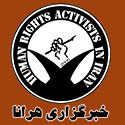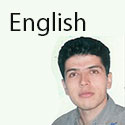Iranian authorities intend to execute three Kurdish men accused of opposing state policies.
PUBLIC
AI Index: MDE 13/075/2008 ۳۰ May 2008
UA 147/08
Death penalty/ torture and ill-treatment
IRAN
Farzad Kamangar (alias Siamand) (m), aged 32, teacher *
Ali Heydariyan (m)*
Farhad Vakili (m)*
(*) from Kurdish ethnic group
Teacher Farzad Kamangar, a member of the Kurdish ethnic group, has been sentenced to death on charges of moharebe, or ‘enmity against God’, a charge levelled against those accused of taking up arms against the state. Ali Heydariyan and Farhad Vakili may also be facing execution.
Farzad Kamangar’s death sentence was passed by Branch 30 of the Tehran Revolutionary Court on 25 February, following a flawed trial in which his contact with his lawyer was limited. He was accused of being a member of the armed group, the Kurdistan Workers’ Party (PKK), and of possession of explosives. The Court viewed these accusations as an attempt to overthrow the state, which, under Iranian law, equates to “enmity against God”.
The death sentence was confirmed by a spokesperson for Iran’s judiciary on 27 May. Farzad Kamangar has lodged an appeal with the Supreme Court. If the sentence is upheld and confirmed by the Head of Judiciary, he may face the death penalty within weeks.
Farzad Kamangar was arrested by Ministry of Intelligence officials along with two other ethnic Kurds, Ali Heydariyan and Farhad Vakili, in Tehran around July 2006. The two other men are believed to have been sentenced to 10 years’ imprisonment, but human rights groups fear they may have also been sentenced to death.
Farzad Kamangar has been held incommunicado at a series of locations, including in the cities of Kermanshah, Sanandaj and Tehran, and has been tortured regularly, including by being beaten, flogged and electrocuted. As a result of this torture, his arms and legs have started to tremble involuntarily.
The non-governmental organization Human Rights Activists in Iran reported that the trial of Farzad Kamangar started at Branch 1 of the Revolutionary Court in the city of Sanandaj, but was then transferred to Tehran. He is now held in Raja’i Shahr prison in Tehran province. He has been held incommunicado throughout his detention.
BACKGROUND INFORMATION
Kurds, who are one of Iran’s many ethnic groups, live mainly in the west and north-west of the country, in the province of Kordestan and neighbouring provinces bordering Kurdish areas of Turkey and Iraq. For many years, Kurdish organizations such as the Kurdistan People’s Democratic Party (KDPI) and Komala have taken up arms against the Islamic Republic of Iran. Another armed group, the Kurdistan Independent Life Party (PJAK), continues to carry out armed attacks against Iranian security and government. Iran has accused foreign governments of fomenting unrest among the country’s ethnic minorities.
The scope of capital crimes in Iran remains extremely broad. Those found guilty of “enmity against God” are not eligible to be pardoned. Judges have discretionary powers to impose the death penalty for certain offences, including those relating to national security.
Article 6(2) of the International Covenant on Civil and Political Rights, to which Iran is a state party, states: “In countries which have not abolished the death penalty, sentence of death may be imposed only for the most serious crimes…” The UN Human Rights Committee, the independent body that reviews states’ implementation of this treaty has stated: “The Committee is of the opinion that the expression ‘most serious crimes’ must be read restrictively to mean that the death penalty should be a quite exceptional measure.”
RECOMMENDED ACTION: Using your own words, please choose a few of the suggestions below to create a personal appeal and send it as quickly as possible:
– urging the authorities to commute Farzad Kamangar’s death sentence immediately;
– acknowledging that governments have a responsibility to bring to justice those suspected of criminal offences in proceedings that adhere to international standards for fair trial, but stating your unconditional opposition to the death penalty, as the ultimate cruel, inhuman and degrading punishment and violation of the right to life;
– asking for full details of the charges against Farzad Kamangar, and the two men arrested with him, Ali Heydariyan and Farhad Vakili;
– expressing concern that his trial may not have met international standards for fair trial, which are essential in capital cases;
– calling on the authorities to grant Farzad Kamangar immediate and regular access to his family and lawyer of his choice and to be granted any medical treatment he may require;
– expressing concern at reports that Farzad Kamangar was tortured, and urging the authorities to investigate those reports fully, with those responsible being brought to justice;
– calling on the authorities to ensure that none of the three men is tortured or ill-treated.
APPEALS TO:
Head of the Judiciary:
Ayatollah Mahmoud Hashemi Shahroudi
Ministry of Justice
Ministry of Justice Building
Panzdah-Khordad Square,
Tehran, Islamic Republic of Iran
Email: info@dadgostary-tehran.ir (In the subject line write: FAO Ayatollah Shahroudi)
Salutation: Your Excellency
COPIES TO:
Leader of the Islamic Republic:
His Excellency Ayatollah Sayed ‘Ali Khamenei
The Office of the Supreme Leader
Islamic Republic Street
Shahid Keshvar Doust Street
Tehran, Islamic Republic of Iran
Email: info@leader.ir
Salutation: Your Excellency
Minister of Intelligence:
Gholam Hossein Mohseni Ejeie
Ministry of Intelligence
Second Negarestan Street
Pasdaran Avenue
Tehran, Islamic Republic of Iran
Salutation: Your Excellency
Mr Seyed Mahdi Mohebi
Chargé d’Affaires, Embassy for the Islamic Republic of Iran
245 Metcalfe Street
Ottawa, Ontario K2P 2K2
Fax: (613) 232-5712



